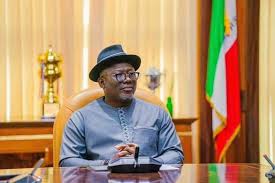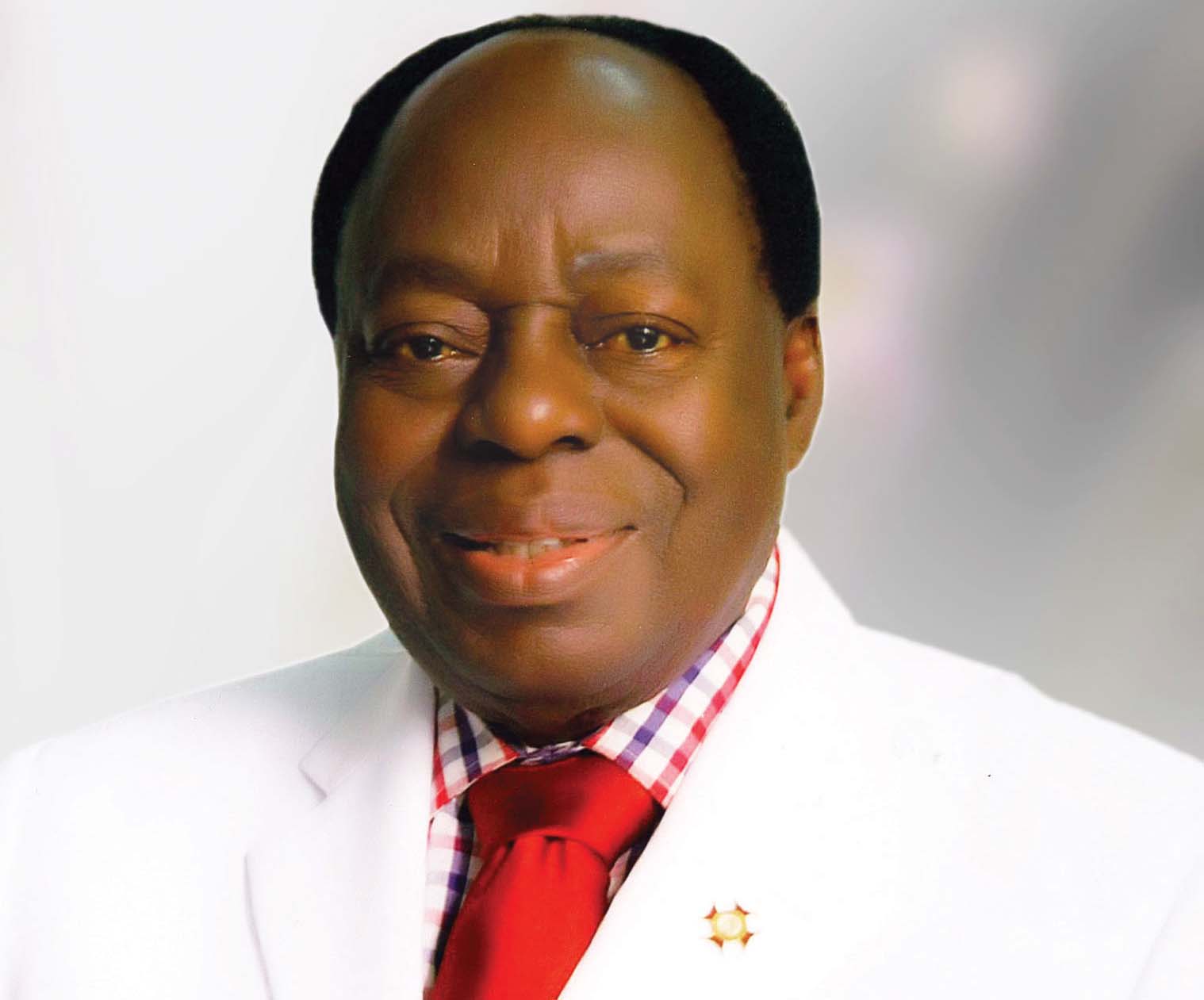Feature
Politics: Regionalism, ethnocentrism and the issues of electioneering
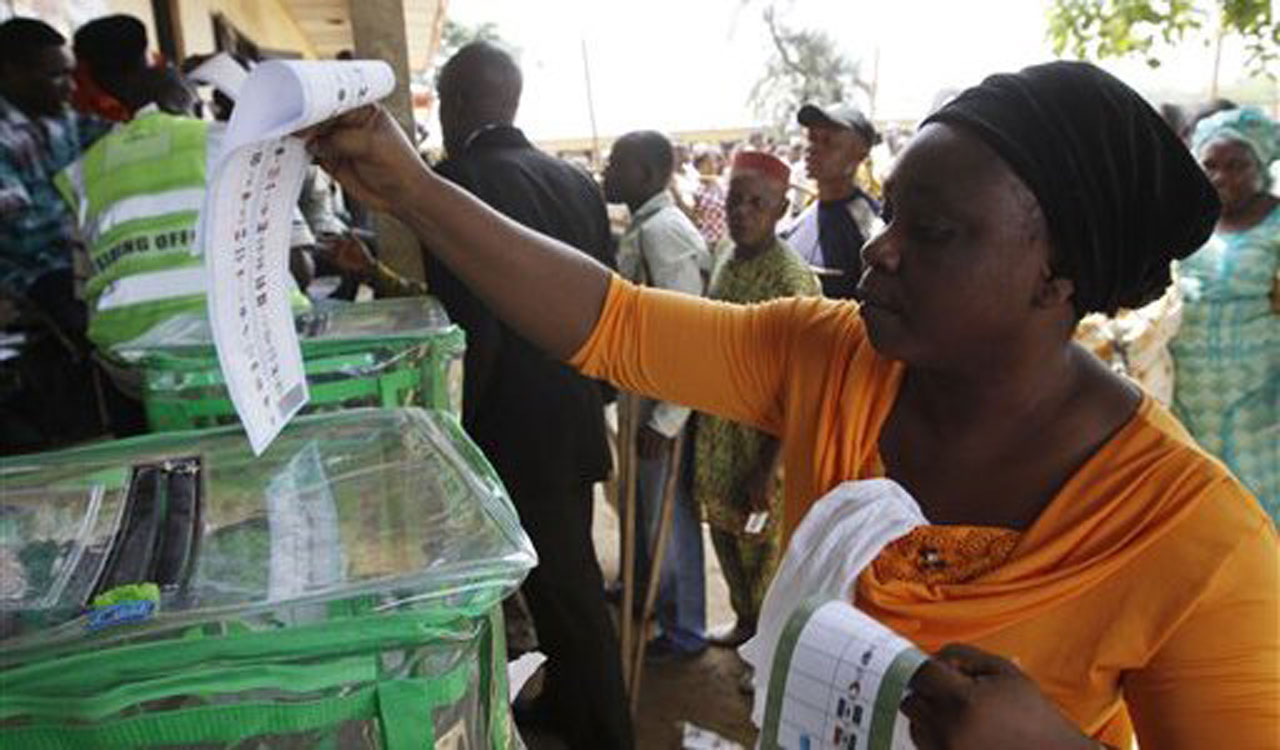
Since the formation of Nigeria, the role of ethnicity, regionalism and religionism has been at the crossroads of our electioneering process. Apart from the horrible civil war that wrecked our nation’s peace and growth, ethnocentrism, regionalism and religionism have been the most harmful forces tearing apart our national unity. They were the latent causes of the civil war, and they have not relented in their mission to destroy our country as a nation. If we are to ensure the common good of all Nigerians, we must establish a new culture of issue-oriented politics now more than ever. While all politics is local, political decisions are national in scope and impact everyone. And any politics that does not aim to improve the lives of its population is a form of national failure.
In many countries around the world, the resurrection of ancient ethnic and religious barriers has become a major concern. The situation in Africa is extremely concerning, as it is threatening several countries’ internal stability, particularly in Sub-Saharan Africa. The magnitude of Nigeria’s ethnic and religious crises in this stage of democratisation is the result of the elite’s manipulation of ethnic and religious identity. Ethnic and religious conflicts have resulted in adversarial social and political connections between diverse ethnocultural groups in Nigeria, which have turned violent in recent years. Political analysts have linked the ethnic and religious issues in Nigeria to the country’s historical structure, the composition of the political class, and how they struggle. It is also linked to the exclusionary nature of ethnic and religious identity politics among various factions in the country.
People’s desires for a better level of living were revived when Nigeria returned to democratic rule, but those dreams were quickly crushed by ethnocultural and religious identities. There are no suitable words to effectively define and demonstrate the ethnocultural problems of Nigerian democracy today. Currently, the country is confronted with political difficulties exacerbated by institutional decay and horizontal inequalities among ethnocultural groups in various states. For so long, the country’s political affairs have been under the control of a few individuals, each representing large and opposing factions of the population. Ethnicity has always been a ready source of their political identification and mobilization for electoral campaigns. When we focus on our differences rather than what makes us the same people, we are all removed and disenfranchised from reaching our sense of national community. Therefore, we need to abandon the ethnocentric attitude that pits us against one another. We need to replace the ethnic and regional divisions of the last four decades with 21st-century politics of ideas that promote national prosperity and togetherness.
Nigeria remains, really, a weak nation unable to provide fundamental public goods and services to its population because of its political topography. It has not yet created an environment in which the poor can sustain and build their livelihoods, nor has it developed a private sector growth and foreign direct investment that will generate jobs. Many patriotic Nigerians are still concerned about access to justice and the culture of corruption in the law enforcement sector and public institutions. Even among the most powerful politicians, there is a lack of political will to promote widespread, long-term wealth development and battle the rising trend of poverty. Many politicians nowadays are more concerned with benefiting themselves than with developing the nation’s social and economic capability.
Past ethnocentric politics have only served to perpetuate a negative energy cycle in our political communities. Self-defeatism like this has put us on a collision course where we perceive each other as enemies rather than as one nation and one people. It has served us no useful purpose and continues to erode the moral core of our nation’s togetherness. As a result, we must quickly demolish the old tribal alienation system and replace it with a politics of ideas and effective administration. Our political judgments and allegiances should be based on who we are as a people, not on where we came from or whose group we were born into. Instead of debating whether the North, the East or the South has the upper hand, let us concentrate on giving our population better education and health care. Let’s look into innovative market-based ideas for breaking the cycle of poverty, restoring and upgrading utility services, and providing work possibilities for the youth. Let us work together to create a future in which every Nigerian lives in peace, free to care for their families and pursue their aspirations.
Feature
NITDA’s Digital Revolution: Catalysing Nigeria’s Renewed Hope Agenda Through Technology

NITDA’s Digital Revolution: Catalysing Nigeria’s Renewed Hope Agenda Through Technology
“You can’t delegate digital transformation for your company… You and your executives have to own it! Executives need to engage, embrace and adopt new ways of working with the latest and emerging technologies.” – Barry Ross
By Matthew Eloyi
As Nigeria forges ahead under the leadership of President Bola Ahmed Tinubu, the promise of the Renewed Hope Agenda has found a remarkable champion in the National Information Technology Development Agency (NITDA). Tasked with the pivotal role of spearheading the nation’s digital transformation, NITDA’s performance in the last two years has exceeded expectations, setting a benchmark for innovation, digital inclusion, and socio-economic empowerment through technology.
From integrating digital literacy in schools to deploying state-of-the-art infrastructure and shaping policies that bolster Nigeria’s tech ecosystem, NITDA has played a central role in actualising the president’s vision of a prosperous, tech-driven Nigeria.
NITDA’s aggressive push to embed digital literacy at all levels of society is a bold declaration that the future belongs to those who can navigate the digital world. The agency collaborated with the Federal Ministry of Education to integrate digital literacy into the curriculum of primary and junior secondary schools across the country. This nationwide effort is expected to cultivate a generation of digitally fluent students, positioning them for the global digital economy.
Under its Digital Literacy for All initiative, NITDA launched massive training programmes across the six geopolitical zones. 166,199 beneficiaries were trained through the Digital Economy Employability Program (DEEP) in 2023, while 50,000 Nigerians acquired foundational digital skills through the DL4ALL initiative. These efforts are geared toward achieving 70% digital literacy by 2027 and 95% by 2030—a target fully aligned with the Renewed Hope Agenda’s ambition for widespread human capital development.
NITDA’s commitment to inclusivity is evident in its female-focused and specialised training programmes. Through the Female Founders Training (FFT) initiative, 30 women-led startups from all six geopolitical zones received entrepreneurial and digital skill training, contributing to bridging the gender gap in the tech ecosystem. Similarly, 402 young girls were empowered through the Gina Mata, Gina Al-Umma programme, which equipped them with skills in digital content creation.
On the occasion of the International Girls in ICT Day in 2024, the agency trained 100 secondary school girls, a clear testament to its commitment to women and girls’ inclusion in digital development. Under the Renewed Hope Initiative, 288 women completed digital skill training tailored to female entrepreneurs and professionals.
Additionally, NITDA targeted other crucial segments of the society. Artisans, farmers, teachers, and public servants were all included. Notably, 420 artisans across the country were trained in digital content creation and entrepreneurship, 200 teachers in four states received upskilling, and 813 public servants across 35 Ministries, Departments, and Agencies (MDAs) were trained on e-governance, paving the way for more responsive and efficient public service delivery.
Amid growing global cyber threats, NITDA took a proactive approach in enhancing Nigeria’s cybersecurity posture. 35,917 Nigerians completed CISCO-certified cybersecurity programmes in areas such as ethical hacking, endpoint security, and network defence.
October 2024 marked a significant milestone as NITDA organised a Cybersecurity Awareness Month filled with workshops, stakeholder collaborations, and media campaigns, all aimed at fostering safe online practices. The agency also supported innovation in the cybersecurity space by organising regional challenges across ECOWAS member states, with 5,341 participants and five innovative cybersecurity solutions presented.
In 2023 alone, NITDA thwarted 62 hacking attempts and 97 phishing incidents targeting federal MDA websites, showcasing its robust defensive capabilities. A total of 162 cyber threat detections were recorded, and 37 public advisories were issued, reinforcing public trust in the agency’s vigilance.
NITDA as the clearing House of IT Projects in Nigeria is mandated to clear all IT Projects in line with the policy objectives of the Federal Government to maximize transparency and accountability in carrying out IT Projects by Public Institutions. In 2023, a total of 181 IT Projects were cleared and ₦259,731,102,012.45 saved. The agency also cleared a total of 228 IT projects in 2024 and saved ₦5,037,482,512.72.
NITDA recognises that digital transformation cannot occur without robust infrastructure. In the last two years, it completed the deployment of 80 e-learning solutions and commissioned eight ICT community centres across states including Jigawa, Kano, Ogun, Oyo, Niger, Benue, Kwara, and Lagos. These centres serve as technology hubs, offering training and resources for underserved communities.
In 2023, a total of 28 Digital Economy Centres were operational across several states, including Adamawa, Akwa Ibom, Bauchi, Benue, Borno, Cross River, Delta, Ebonyi, Edo, Ekiti, Enugu, Gombe, Imo, Jigawa, Kaduna, Kano, Katsina, Kebbi, Kogi, Kwara, Lagos, Niger, Ogun, Osun, Oyo, Plateau, Sokoto, and the Federal Capital Territory (FCT). Additionally, nine Community IT Training Centres were active in Bauchi, Kaduna, Guni, Jigawa, Niger, Benue, Kano, Gombe, and Oyo. Expansion efforts for 2024 included the establishment of 22 new Digital Economy Centres in Abia, the FCT, Adamawa, Anambra, Bauchi, Borno, Ebonyi, Ekiti, Enugu, Gombe, Imo, Jigawa, Kaduna, Kano, Katsina, Kebbi, Lagos, Nasarawa, Ogun, Ondo, Osun, and the FCT.
The agency also completed a well-equipped CBT centre in Kogi State and ICT equipping projects in Gombe and the National Institute for Security Studies (NISS). Under the Outsource for Nigeria Initiative (OTNI), the Gombe project exemplifies how digital hubs can boost employment and skill acquisition in regions that traditionally lag behind in tech infrastructure.
NITDA has emerged as a thought leader in the formulation of policies that govern Nigeria’s digital ecosystem. The agency facilitated the development of an Artificial Intelligence (AI) strategy to position Nigeria in the global AI ecosystem, focusing on ethical adoption and national competitiveness.
Its IPv6 Adoption Summit was a forward-looking event aimed at ensuring Nigeria’s internet infrastructure aligns with global standards, catering to future connectivity demands.
Major tech firms: Meta, Google, TikTok, and X submitted compliance reports to NITDA, reinforcing the agency’s regulatory authority. NITDA also revised and audited the National Public Key Infrastructure (PKI), completed recertification of ISO27001:2013, and increased awareness on the Trustmark process for e-commerce providers, further establishing trust in Nigeria’s digital services.
Under the Nigeria Adopted Village for Smart Agriculture (NAVSA) initiative, 200 smallholder farmers have been onboarded and trained in precision agriculture and climate-smart farming practices. To date, more than 450 farmers have directly benefited from the program, with over 1,500 indirect jobs created as a result.
Through the Technology Innovation and Entrepreneurship Support Scheme (TIES), NITDA provided scholarships and funding opportunities, while also supporting startups at major global platforms such as GITEX North Star 2023. These efforts not only boosted the visibility of Nigerian innovations but also attracted foreign investment. Additionally, 10,943 beneficiaries were trained under the NITDA-Coursera partnership between 2023 and 2025.
In a related effort to boost global trade and startup growth, NITDA co-manages the Tech Export & Digital Trade Desk alongside Federal Ministry of Communications Innovations and Digital Economy (FMCIDE) and Federal Ministry of Industry Trade and Investment (FMITI), with a focus on expanding Nigerian startups through the African Continental Free Trade Area (AfCFTA) and global markets. Since its inception, the desk has engaged over 70 startups through two dedicated programs and facilitated more than 10 key connections between startups, partners, and regulators. The initiative also led to the development and dissemination of the AfCFTA Startup Guide and promoted a public-private partnership with NIPOST to enhance logistics for tech-driven trade.
NITDA’s active involvement in prominent global technology events—including GITEX, Digital Nigeria, and the International Conference on Theory and Practice of Electronic Governance (ICEGOV)—has significantly enhanced Nigeria’s international reputation in the tech space. Demonstrating its dedication to knowledge exchange and intellectual growth, the agency also sponsored five Nigerian researchers to participate in the 17th edition of ICEGOV, held in 2024 in Pretoria, South Africa.
The trajectory NITDA has charted under the Renewed Hope Agenda is one of audacity, vision, and inclusivity. It is a story of how a nation, through the resolve of a strategic agency, is reclaiming its future by digitising its present. Every classroom connected, every artisan trained, every woman empowered, and every cybersecurity threat neutralised is a testament to the agency’s transformative impact.
As the digital revolution gathers momentum, NITDA remains a cornerstone of Nigeria’s journey towards a resilient, knowledge-based economy. It is no longer a question of if Nigeria will lead Africa’s digital future—but how soon.
Feature
Bridging Innovation and Opportunity: NITDA’s Bold Digital Step in Southeast
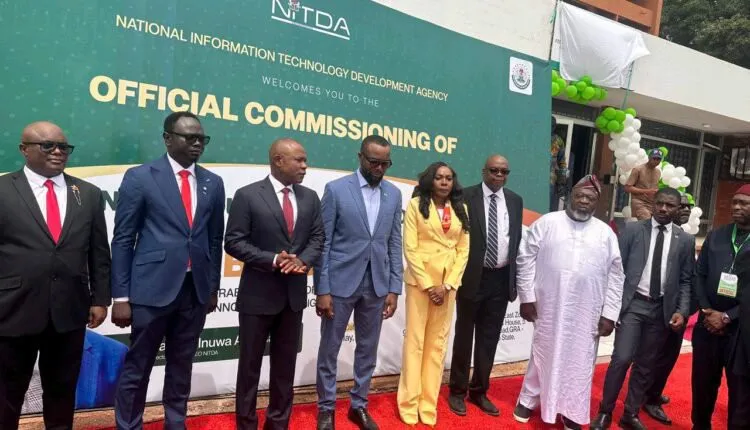
Bridging Innovation and Opportunity: NITDA’s Bold Digital Step in Southeast
By Matthew Eloyi
In a decisive stride toward digital inclusivity and national development, the National Information Technology Development Agency (NITDA) has once again demonstrated its visionary leadership in Nigeria’s digital transformation journey with the commissioning of its South East regional office in Enugu. This development is not just another bureaucratic expansion—it is a landmark initiative poised to catalyze innovation, bridge regional opportunity gaps, and empower the Southeast with the tools needed for success in the 21st-century digital economy.
At the heart of this bold step is a clear mandate: to bring the digital economy closer to Nigerians across all geopolitical zones. The newly inaugurated office, commissioned by Governor Peter Mbah of Enugu State and graced by the Minister of Communications, Innovation and Digital Economy, Dr. Bosun Tijani, is designed to function as a strategic hub for digital skills development, startup support, regulatory advisory, and multilateral partnerships.
What sets this move apart is the deliberate alignment with President Bola Ahmed Tinubu’s Renewed Hope Agenda. It is no coincidence that Dr. Tijani described the event as “far more than the opening of a building,” but rather “the establishment of a permanent bridge between national policy and local potential.” Indeed, the infrastructure may be physical, but the impact is deeply symbolic—an inclusive and decentralized approach to building Nigeria’s digital future.
With Nigeria’s youth population projected to continue growing rapidly, the question of equitable access to digital opportunities has never been more urgent. This is where NITDA’s role becomes not only relevant but essential. By placing a regional hub in Enugu, the agency is decentralizing innovation, expanding its national footprint, and tapping into the intellectual capital and entrepreneurial energy of the Southeast.
Governor Mbah’s remarks at the commissioning further underscore the strategic significance of this investment. He rightly emphasized that economic diversification is not a luxury but a necessity, and the technology sector holds one of the brightest prospects for sustainable growth. He went further to applaud NITDA’s foresight, stating that the regional office represents a transformative opportunity for young people in Enugu and beyond to acquire lifelong digital skills that align with the global workforce.
For many in the region, this initiative provides the infrastructure needed to actualize their digital dreams. Whether it’s young software developers looking for mentorship and resources, budding tech entrepreneurs in need of incubation, or universities seeking research collaboration, the Enugu regional office is positioned as a critical nexus of support.
Dr. Tijani’s praise of Enugu as one of Nigeria’s most promising innovation frontiers is both an endorsement and a challenge. He noted that “something extraordinary is unfolding in Enugu,” citing the palpable momentum the state has achieved in less than two years under Governor Mbah’s leadership. NITDA’s presence will undoubtedly amplify this momentum, creating a virtuous cycle of talent development, innovation, and economic upliftment.
This initiative also sets a precedent for how federal institutions can effectively partner with state governments, academia, and the private sector to deliver development outcomes. It reflects a maturing understanding of digital policy—one that recognizes that progress must be rooted in collaboration, inclusiveness, and regional empowerment.
While Nigeria continues to face multifaceted challenges, the commissioning of the NITDA regional office in Enugu is a refreshing reminder that with deliberate policy and strategic investment, progress is achievable. It is a testament to what is possible when institutions move beyond rhetoric and commit to creating real, measurable impact at the grassroots level.
In a world increasingly defined by data, innovation, and connectivity, NITDA is playing a vital role in ensuring Nigeria does not remain on the periphery of the digital revolution. The agency’s Enugu office is more than bricks and mortar—it is an emblem of hope, a channel for empowerment, and a bold affirmation that the future is not just coming to Nigeria—it is being built, thoughtfully and inclusively, by Nigerians.
Feature
Google and Nigeria: Collaborating for a Digital Tomorrow
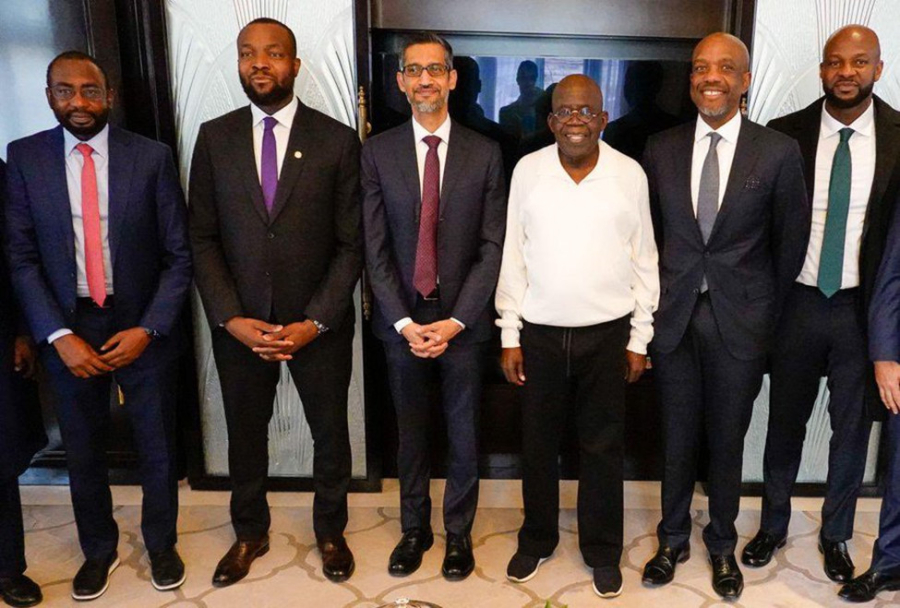
In an era where digital transformation is defining economic growth and global competitiveness, Nigeria is positioning itself at the forefront of Africa’s technology revolution. With an ambitious partnership with Google, the country is set to harness the power of artificial intelligence (AI), cloud computing, and digital infrastructure to drive innovation and economic diversification.
According to a report by Punch Newspaper, President Bola Ahmed Tinubu recently announced Nigeria’s commitment to leading AI innovations in Africa. His announcement came after a high-level engagement with SundarPichai, the Chief Executive Officer of Google and Alphabet, during a meeting in France. This partnership, as highlighted by the President, is designed to advance Nigeria’s role in AI and digital technology, reinforcing his administration’s Renewed Hope Agenda, which prioritisesindustrialisation, digitisation, and innovation.
Beyond governmental rhetoric, this collaboration aims to materialise into practical initiatives that will empower businesses, create jobs, and enhance Nigeria’s digital economy. The Federal Ministry of Communications, Innovation, and Digital Economy is expected to oversee the implementation of these initiatives, with the National Information Technology Development Agency (NITDA) playing a lead role in execution.
According to the Director-General of NITDA,KashifuInuwaAbdullahi CCIE, the partnership between Nigeria and Google is a critical step towardtowards making Nigeria a digitally empowered nation , fostering inclusive economic growth through technological innovation. . Speaking in a televised interview, as reported by the News Agency of Nigeria, he emphasised that the collaboration will focus on infrastructure development, upskilling Nigerian citizens, fostering AI innovation, adopting cloud technologies, and creating an investment-friendly environment.
One of the major areas of focus is the establishment of data centres to support Nigeria’s growing digital infrastructure, putting the country on the path of digital sovereignty The NITDA boss noted that no data centre globally relies solely on grid electricity. Thus, the integration of renewable energy sources and carbon credit initiatives will be key to the sustainability of this project.
Furthermore, the partnership aims to enhance digital literacy by embedding digital skills training across Nigeria’s educational system, from primary school to tertiary institutions. This initiative aligns with the broader goal of preparing the Nigerian workforce for emerging opportunities in the global digital economy.
While the collaboration with Google is extensive, Nigeria is also making strides in AI research through other strategic initiatives. President Tinubu highlighted Awarri Technologies as a key player in the AI space, with ongoing efforts to build critical AI software infrastructure tailored to Nigeria’s unique market needs.
The strategic partnership between Nigeria and Google represents a significant leap toward positioning the country as Africa’s digital powerhouse. By leveraging AI, cloud computing, and scalable digital infrastructure, Nigeria is on course to becoming a major player in the global technology landscape.
With the Federal Ministry of Communications, Innovation, and Digital Economy providing oversight and NITDA spearheading implementation, the collaboration promises to create new economic opportunities, enhance digital access, and equip Nigerians with the skills needed to thrive in a rapidly evolving digital world. As Nigeria embraces this digital revolution, the partnership with Google may well be the catalyst that propels the country into a future where technology drives inclusive growth, innovation, and sustainable development.
-

 Headlines3 years ago
Headlines3 years agoFacebook, Instagram Temporarily Allow Posts on Ukraine War Calling for Violence Against Invading Russians or Putin’s Death
-

 Headlines3 years ago
Headlines3 years agoNigeria, Other West African Countries Facing Worst Food Crisis in 10 Years, Aid Groups Say
-

 Foreign3 years ago
Foreign3 years agoNew York Consulate installs machines for 10-year passport
-

 News10 months ago
News10 months agoZero Trust Architecture in a Remote World: Securing the New Normal
-

 Entertainment3 years ago
Entertainment3 years agoPhyna emerges winner of Big Brother Naija Season 7
-

 Headlines1 year ago
Headlines1 year agoNigeria Customs modernisation project to check extortion of traders
-

 Economy1 year ago
Economy1 year agoWe generated N30.2 bn revenue in three months – Kano NCS Comptroller
-
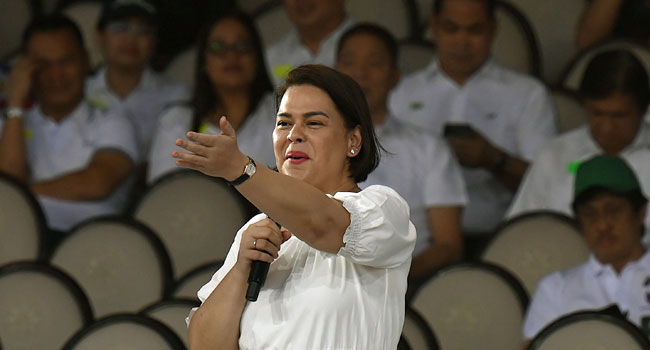
 Headlines1 year ago
Headlines1 year agoPhilippines’ Vice President Sara Duterte resigns from Cabinet


